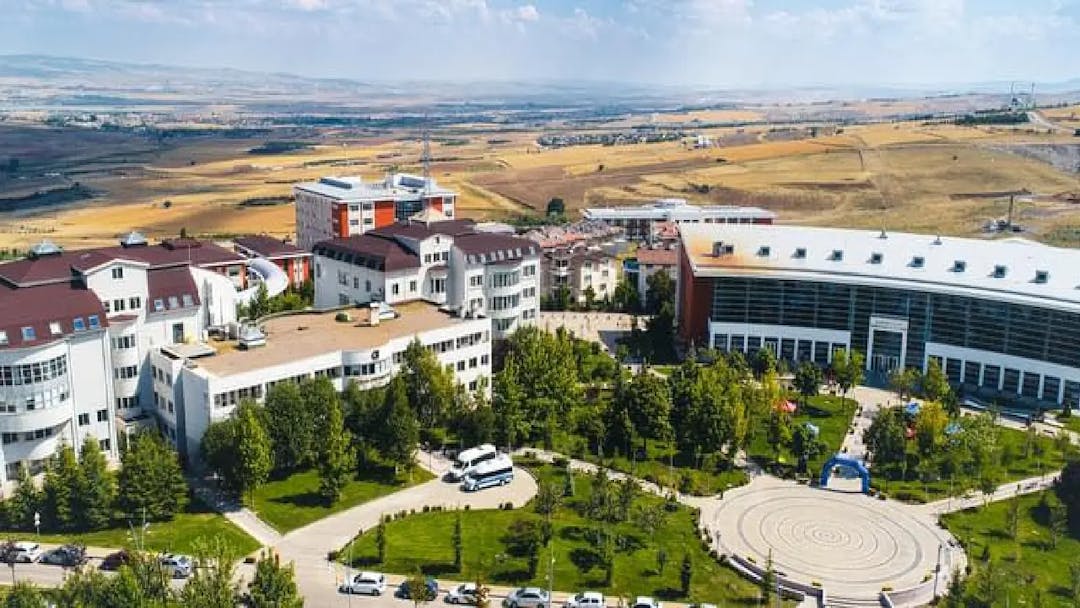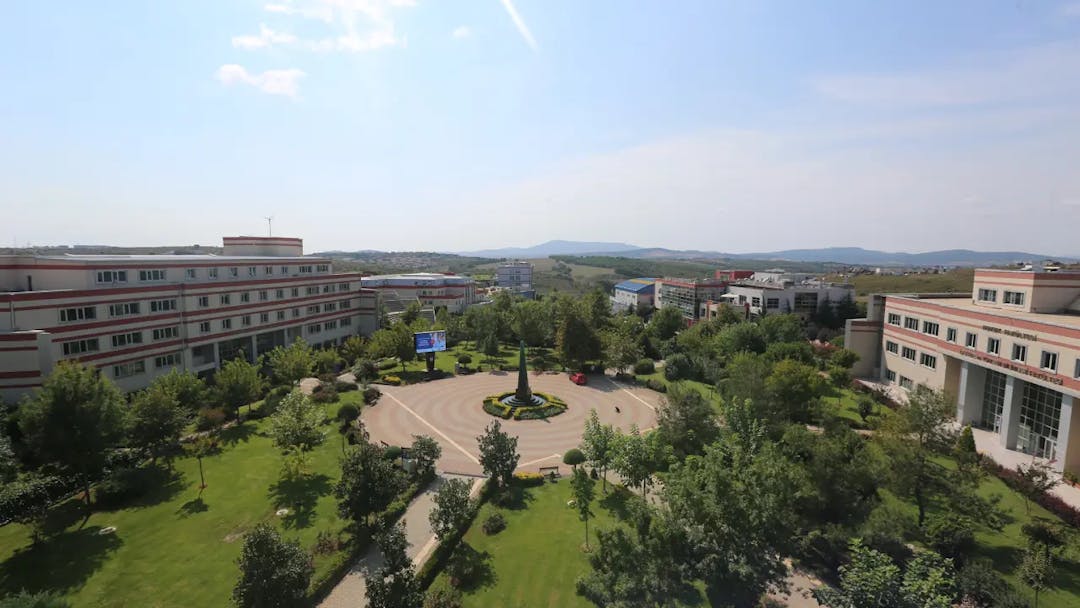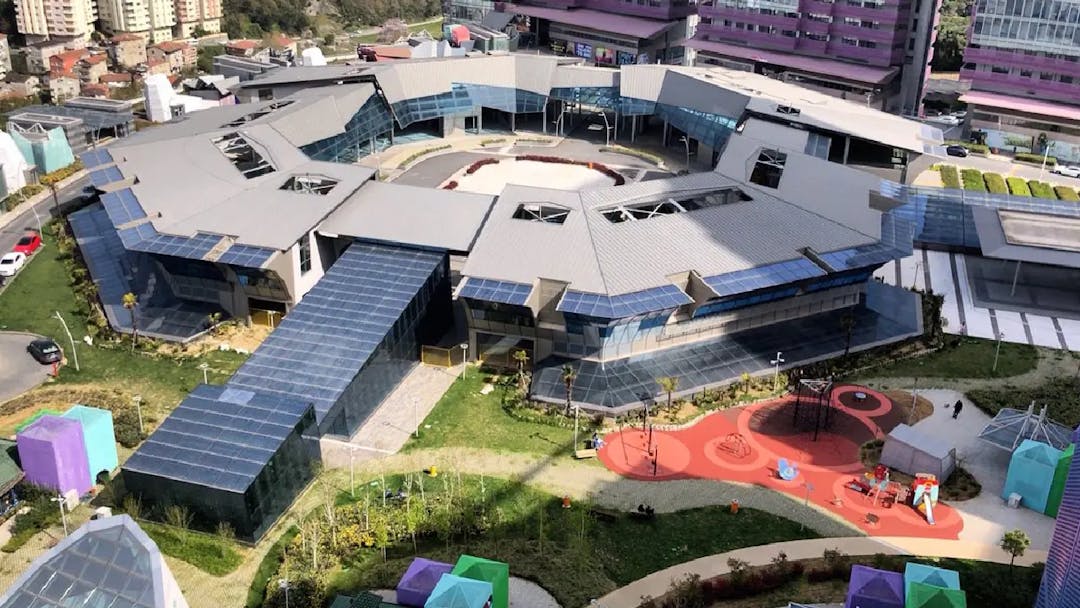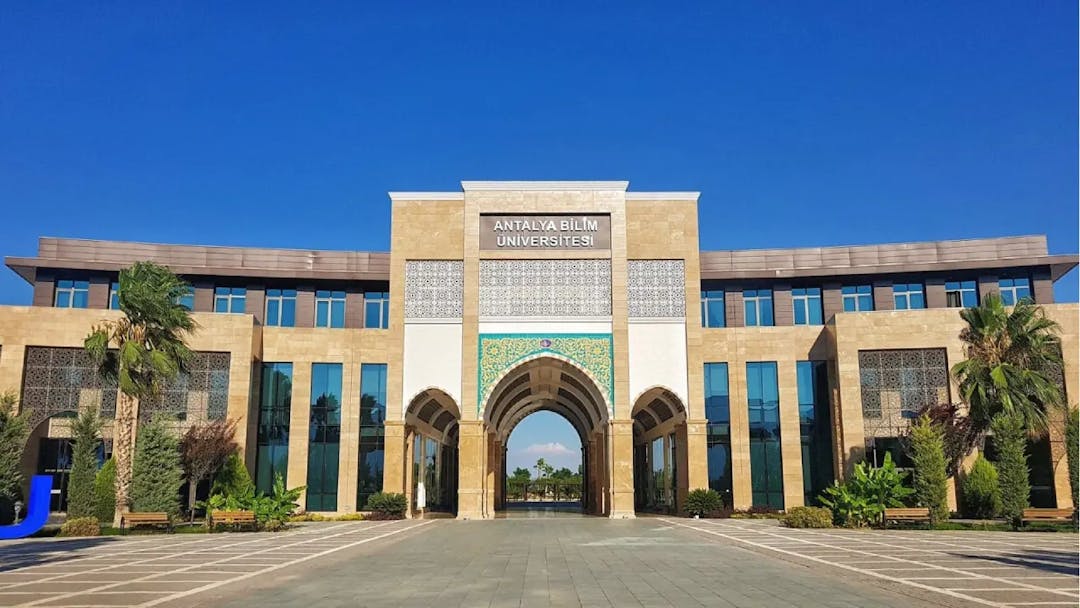About Major Civil Engineering In Turkey
About Major Civil Engineering In Turkey
The Requirement Civil Engineering In Turkey
Frequent Question Civil Engineering In Turkey
Apply Now!
University Available Civil Engineering In Turkey
About Major Civil Engineering In Turkey

An overview of Civil Engineering:
Civil engineering is one of the oldest engineering disciplines that emerged with man's transition to permanent settlement. It is a branch specialized in the design, construction, and maintenance of facilities and infrastructure that are used in daily life. Civil engineering encompasses a wide range of projects and systems that play a crucial role in developing cities, urban structure and improving the quality of life. Civil engineering has always maintained its importance wherever civilization exists. Civil engineering has evolved and changed in parallel with technological developments and social changes. It is a wide-ranging profession, and the construction industry is progressing at an amazing pace and a building cannot be designed without a civil engineer. Civil engineering has remained constantly evolving and moving through the changing lifestyles and expectations of humanity. The field of civil engineering includes many activities and specializations, including:
- Structural engineering: Design and construction of various buildings and facilities, such as skyscrapers, bridges, residential and industrial buildings, and ensure their safety and stability.
- Roads and bridges: Design and construction of roads and bridges for rapid transit and public transportation to facilitate traffic and transportation.
- Water and sanitation infrastructure: Design and maintenance of water supply systems and networks. Sanitation and construction of wastewater treatment plants. With the aim of protecting water resources and ensuring clean water supplies.
- Energy infrastructure: designing and building electrical generating stations, electrical networks, and energy distribution systems, and providing effective energy solutions.
- Transportation infrastructure: designing, implementing, and maintaining public transportation networks such as metro, railways, and airports, to facilitate the movement of people and goods.
- Communications infrastructure: Design and construction of communications and Internet networks.
- Environment and natural resources: Design and implementation of solutions aimed at preserving and sustaining the environment and improving environmental quality, such as waste management and pollution control.
- Geotechnical engineering: Study and design of geotechnical structures and evaluation of soil and terrain to deal with problems of natural disasters such as landslides and floods.
- Urban management and planning: planning cities and developing infrastructure to create sustainable and efficient urban areas.
- Public infrastructure: building schools, hospitals, government buildings, and other public facilities.
The history of civil engineering extends back thousands of years. It is the story of humanity and its ability to develop the structure of the world around us. It dates back to ancient civilizations in Egypt, the Nile Valley and Mesopotamia, where it was used to build pyramids, bridges, roads and canals. In the 18th century, the term "civil engineering" emerged as an engineering discipline, and the first civil engineering institute was founded in France.
Civil engineering requires a solid understanding of engineering principles, science, and technology to ensure the safety, efficiency, and functionality of infrastructure projects. Civil engineering includes many aspects such as design, analysis, project management, inspection, and ensuring compliance with engineering standards and regulations. Civil engineering faces diverse challenges in its endeavor to ensure that projects are safe, cost-effective, meet community needs, and contribute to the development of cities and regions.
Why study Civil Engineering in Turkey?
If you are planning to study civil engineering, Turkey will be one of the best educational opportunities for you, given the progress in Turkish research in this sector. Turkish universities are keen on the quality of the educational curriculum in order to comply with international standards. Universities also exploit all their capabilities to serve the requirements of the civil engineering major to ensure students excel in their educational and professional lives.
Here are some reasons why students may choose to study in Turkey for this major:
- Prestigious universities: Turkey includes many well-known and internationally accredited universities that represent leading research centers in the field of civil engineering. Private universities invest in modern infrastructure and advanced equipment to support research and development in this specialty.
- Highly skilled faculty members: They have the ability to research and design civil engineering applications. New methods, models and models, as well as an analysis of the latest developments in the development of civil engineering systems.
- Cultural and social diversity: Turkey is a country that combines tradition and modernity, East and West, and a diverse cultural experience is available among international students studying in Turkey.
- Research and innovation environment: Dynamic programs adapted to Recent changes and developments in the civil engineering sector and technological research, this creates a suitable environment for studying civil engineering and innovation in this discipline.
- Reasonable cost of living: Compared to some other countries, Turkey offers a reasonable cost of living, making it an attractive destination for international students.
Overall, Turkey offers an exciting and attractive environment for studying in the field of civil engineering, and is increasingly popular among international students researching this discipline.
Skills required to study Civil Engineering:
- Identify and Solve Problems: Engineers are faced with complex engineering challenges that they must identify, analyze, understand, and then develop effective solutions using engineering, science, and mathematics principles.
- Engineering Design: Engineers use engineering knowledge to design products and projects that meet specific needs, taking into account factors related to health, safety, and well-being, as well as global, cultural, social, environmental, and economic factors.
- Effective Communication: Engineers need to communicate effectively with their colleagues, clients, and different audiences to explain ideas and solutions clearly and understandably.
- Ethical and Professional Responsibility: Engineers need to understand the laws related to their field and take them into account when making decisions that affect the environment and society. Learn about ethical and professional responsibilities in engineering situations and make informed judgments.
The average annual salary for beginners to a major is Civil Engineering $71,260
The Requirement Civil Engineering In Turkey
Passport
Personal photo
Toefl
High school diploma
High school transcript
Frequent Question Civil Engineering In Turkey
What is Civil Engineering?
Civil engineering is the art that combines vision and creativity to transform human dreams of building new worlds into a solid reality. It is a branch of engineering concerned with the design and development of facilities, including buildings, bridges, roads, water and sewage networks, and public facilities. It is not just the designs and engineering of systems and infrastructure, but rather an expressive language that links creativity and technology. It is the art of construction and design that makes the world more... Safety, comfort and beauty. The civil engineering engineer aims to improve the quality, safety and sustainability of the project, in addition to meeting the needs of the community and the surrounding environment.
What is the importance of Civil Engineering?
In an environment where the world's population is rapidly increasing, natural resources are decreasing and environmental balances are beginning to deteriorate, civil engineers are now obligated to consider the environment and economic use of resources in their projects.
Civil engineering is of great and decisive importance in the world today and plays a vital role in improving human lives and enabling development and progress in our societies.
What is the purpose of Civil Engineering?
The main goal of civil engineering is to design and build necessary infrastructure such as roads, bridges, sewerage networks, water supply and public utilities to ensure the provision of basic services to the community, and to design buildings, structures and facilities so that they are safe to use and withstand natural disasters and unexpected events. It also provides a balance between economic growth, environmental preservation, and sustainability, so that it meets the needs of current generations without negatively impacting the rights of future generations.
In short, civil engineering aims to improve the quality of human life and develop communities by designing and building infrastructure and projects in a way that meets the needs of society and contributes to achieving progress and well-being.
What is the history of Civil Engineering?
The history of civil engineering is a long and exciting journey extending through the ages, and it is an integral part of the history of human progress and the development of civilizations. The history of civil engineering dates back to ancient times, and it is one of the oldest important engineering disciplines known to man. It plays a crucial role in shaping the world we live in and ensuring our comfort and safety. We will learn about the history of civil engineering and how this specialty originated and developed throughout the ages.
- Antiquity: Civil engineering has roots dating back to ancient times. The civilization of ancient Egypt is considered one of the first civilizations to use civil engineering in building the famous pyramids and water supply systems such as the Nilometer. The Romans also created a network of roads, bridges, water parks, and dams to upgrade infrastructure and improve resource transportation.
- middle ages: The Middle Ages witnessed a remarkable development in civil engineering in Europe and other regions, and engineering methods and the use of building materials developed. The massive construction of cathedrals, castles, and bridges began.
- Modern times: With the beginning of the Industrial Revolution in the 19th century, building techniques and the use of new machines and materials developed dramatically. Railways and train tunnels were built and water and sewerage systems were improved.
- Nowadays: In the twentieth century and beyond, civil engineering has seen tremendous developments. High-rise towers and giant bridges were built. Computer-aided construction and design techniques have been developed. Civil engineering has become one of the most important factors in improving people's lives and contributing to sustainable development.
The history of civil engineering is a story of human supremacy and technological development and reflects the evolution of humanity throughout the ages. It is a field that shapes the world around us and contributes to achieving progress, well-being and building sustainable societies. Previous achievements in this field inspire us to continue research and innovation to achieve a more prosperous and wealthy future. The history of civil engineering is a history of innovation and progress, and its future is still bright.
What do Civil Engineering graduates do?
Graduates of this department can find a job opportunity anywhere there is construction. Civil engineering is a history of innovation and progress, and its future remains bright. A civil engineer is an engineer with high qualifications and skills in the field of information technology and management and who is technically capable of updating himself at the international level. Civil engineering graduates work in a variety of fields and industries. Here are some examples of common places of employment for civil engineering graduates:
- Civil Construction: They can work in the field of civil construction, where they supervise the design and construction of buildings and public structures such as towers, bridges, hospitals, and schools.
- Infrastructure: You can work on designing and implementing basic infrastructure such as water and sewage networks, electricity networks, roads, and public transportation.
- Engineering consulting: You can work as an engineering consultant, providing consulting and engineering services to clients to help them develop and manage their projects.
- Environment and Sustainability: It is possible to work in the field of environment and sustainability, including designing and implementing projects to improve environmental quality and resource management.
- Project Management: You can work as a project manager, managing and coordinating engineering projects from start to finish to ensure they are implemented safely, on budget, and on time.
- Research and development: One can work in the field of research and development to develop new engineering technologies, practices, and materials.
- Education and teaching: They can work in the field of education and teaching and hold academic positions in universities and technical schools.
- Government sector: You can work in government jobs in various departments such as the Ministries of Public Works, Environment, and Urban Planning.
- Private companies: You can work in engineering and construction companies to work on various projects.
These are just examples, and civil engineers can work in many industries and fields depending on their own preferences and interests. They contribute to developing and building urban and rural infrastructure and achieving sustainable development and social well-being.
University Available Civil Engineering In Turkey

Istanbul Aydin
Language
Turkish
English
Tuition fees (Schedule)
$4000
$6000


Bahçeşehir
Language
English
Tuition fees (Schedule)
$9000


Istanbul Bilgi
Language
English
Tuition fees (Schedule)
$6930


Kadir Has
Language
English
Tuition fees (Schedule)
$6000


Istanbul Medipol
Language
English
Turkish
Tuition fees (Schedule)
$6500
$5000


Atilim
Language
English
Tuition fees (Schedule)
$5500


Altınbaş
Language
English
Tuition fees (Schedule)
$4500


Istanbul Gelisim
Language
Turkish
English
Tuition fees (Schedule)
$3500
$4000


Istanbul Okan
Language
English
Turkish
Tuition fees (Schedule)
$0
$0


Işık
Language
English
Tuition fees (Schedule)
$4800


Hasan Kalyoncu
Language
English
Tuition fees (Schedule)
$0


Istanbul Nişantaşı
Language
Turkish
English
Tuition fees (Schedule)
$3250
$3800


Istanbul Arel
Language
Turkish
Tuition fees (Schedule)
$3500


Istanbul Esenyurt
Language
Turkish
Tuition fees (Schedule)
$2200


Antlya Bilim
Language
English
Tuition fees (Schedule)
$3320


Istanbul Gedik
Language
Turkish
Tuition fees (Schedule)
$2000


Maltepe
Language
English
Turkish
Tuition fees (Schedule)
$0
$0


Istanbul Kultur
Language
English
Tuition fees (Schedule)
$2466


Yeditepe
Language
English
Tuition fees (Schedule)
$0

| University | Language | Tuition fees (Schedule) |
|---|---|---|
| Istanbul Aydin | Turkish | $4,000 |
| Istanbul Aydin | English | $6,000 |
| Bahçeşehir | English | $9,000 |
| Istanbul Bilgi | English | $6,930 |
| Kadir Has | English | $6,000 |
| Istanbul Medipol | English | $6,500 |
| Istanbul Medipol | Turkish | $5,000 |
| Atilim | English | $5,500 |
| Altınbaş | English | $4,500 |
| Istanbul Gelisim | Turkish | $3,500 |
| Istanbul Gelisim | English | $4,000 |
| Istanbul Okan | English | - |
| Istanbul Okan | Turkish | - |
| Işık | English | $4,800 |
| Hasan Kalyoncu | English | - |
| Istanbul Nişantaşı | Turkish | $3,250 |
| Istanbul Nişantaşı | English | $3,800 |
| Istanbul Arel | Turkish | $3,500 |
| Istanbul Esenyurt | Turkish | $2,200 |
| Antlya Bilim | English | $3,320 |
| Istanbul Gedik | Turkish | $2,000 |
| Maltepe | English | - |
| Maltepe | Turkish | - |
| Istanbul Kultur | English | $2,466 |
| Yeditepe | English | - |



